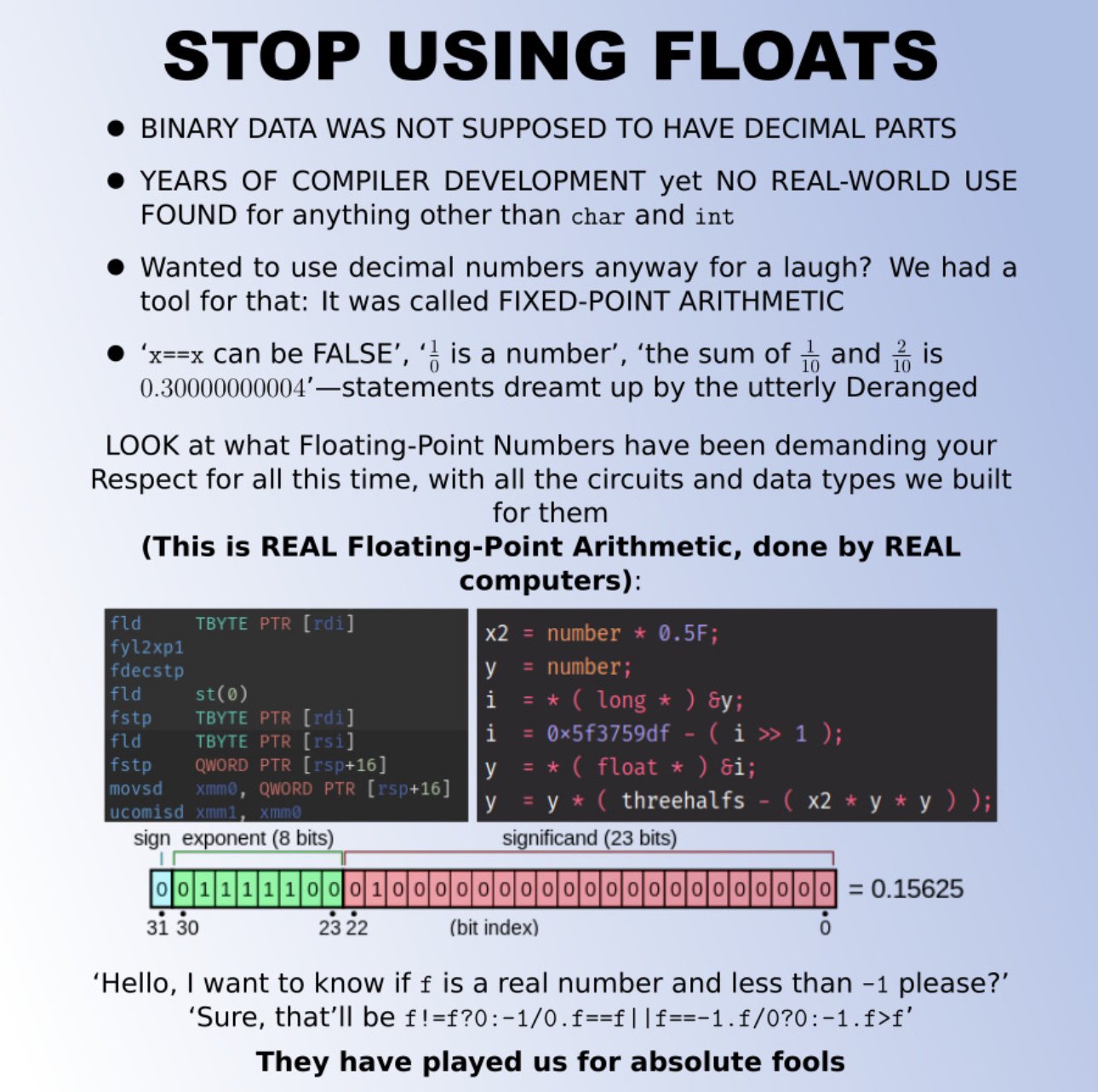this post was submitted on 26 Feb 2024
751 points (95.7% liked)
Programmer Humor
20039 readers
230 users here now
Welcome to Programmer Humor!
This is a place where you can post jokes, memes, humor, etc. related to programming!
For sharing awful code theres also Programming Horror.
Rules
- Keep content in english
- No advertisements
- Posts must be related to programming or programmer topics
founded 2 years ago
MODERATORS
you are viewing a single comment's thread
view the rest of the comments
view the rest of the comments

Obviously floating point is of huge benefit for many audio dsp calculations, from my observations (non-programmer, just long time DAW user, from back in the day when fixed point with relatively low accumulators was often what we had to work with, versus now when 64bit floating point for processing happens more as the rule) - e.g. fixed point equalizers can potentially lead to dc offset in the results. I don't think peeps would be getting as close to modeling non-linear behavior of analog processors with just fixed point math either.
Audio, like a lot of physical systems, involve logarithmic scales, which is where floating-point shines. Problem is, all the other physical systems, which are not logarithmic, only get to eat the scraps left over by IEEE 754. Floating point is a scam!
Not only for audio, but everything that doesn't have to be an exact base 10 representation (like money). Anything that represents something "analog" or "measured" is perfectly fine to store in a float. Temperature, humidity, windspeed, car velocity, rocket acceleration, etc. Calculations with floats are perfectly accurate and given the same bit length are as accurate as decimal types. The only thing they can't do is exactly(!) represent base 10 decimals but for a very large amount of applications that doesn't matter.